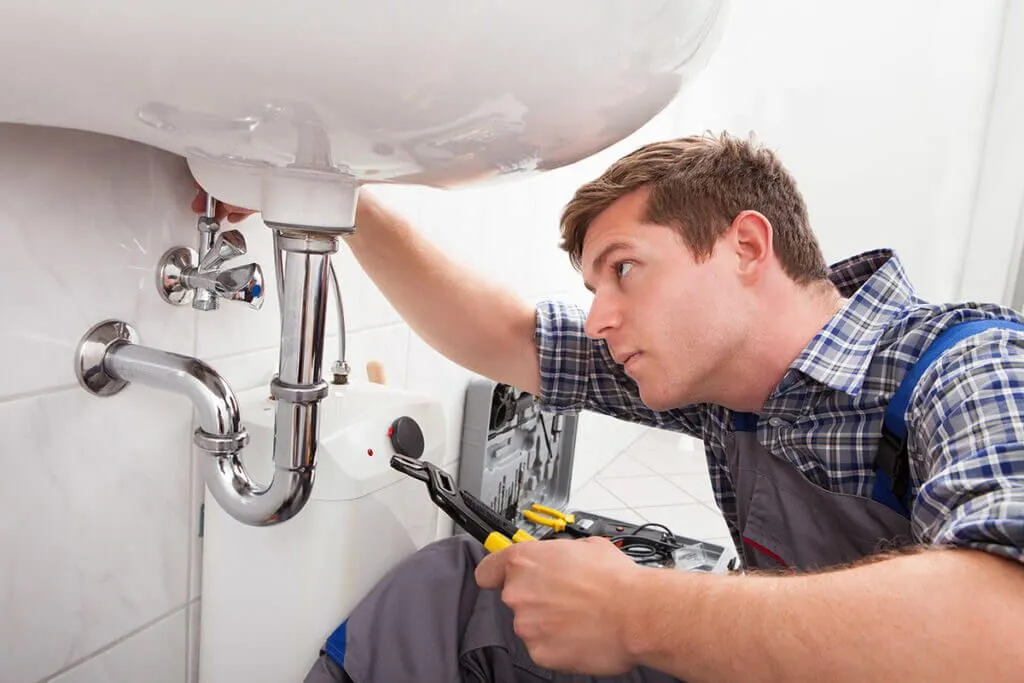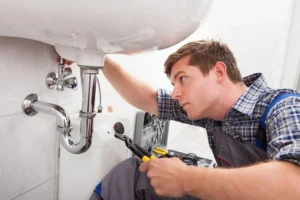Your home’s plumbing system plays a vital role in your everyday comfort from hot morning showers to clean dishes and fresh laundry. It’s one of those things you rely on constantly, yet rarely think about until something goes wrong.
What starts as a small drip or clog can quickly turn into water damage, mold, or costly repairs. Fortunately, with the right habits and routine care, you can catch problems early or even prevent them altogether. Whether it’s a simple DIY fix or spotting the warning signs of a larger issue, a little attention now can save you from major headaches later.
At Prestige Home Guard, we believe prevention is just as important as protection. That’s why we not only help when problems arise but encourage homeowners to stay ahead of them.
Your Plumbing System: What It Does and Why Maintenance Matters
Your plumbing system starts at the very beginning where water enters your home, either from the main city line or a private well. From there, it flows through a central shut-off valve (important in emergencies), then through key components like a pressure tank, water heater, or water softener before making its way through a complex network of pipes hidden inside your walls and floors.
These pipes whether made of lead, copper, or PVC are responsible for delivering water to your faucets, toilets, showers, dishwashers, washing machines, and even outdoor spigots. It’s an invisible system you rely on every single day, and yet it’s easy to overlook until something goes wrong.
Plumbing: A Major Part of Your Home’s Value
What many homeowners don’t realize is that your plumbing system accounts for about 15% of your home’s total value. That means every drip, clog, or leak isn’t just an inconvenience it’s a potential threat to one of your biggest investments.
One of the most important things you can do is look for water leaks. According to the EPA, simple-to-fix leaks in U.S. homes waste nearly 1 trillion gallons of water each year. That’s not just bad for the environment it can also lead to structural damage and inflated utility bills.
The Cost of Hidden Leaks
- The average household loses nearly 10,000 gallons of water each year due to leaks.
- That’s enough water to do 300 loads of laundry or take 180 showers.
- Even a small drip from a faucet just one drop per second can waste over 3,000 gallons annually.
- These leaks can cause up to a 10% increase in your water bills.
Even worse, some of the most damaging leaks are the ones you can’t see. That’s why early detection is critical.
3 Simple Ways to Detect Hidden Leaks
- Check Your Water Bill
If a family of four uses more than 12,000 gallons in January or February, it’s a strong indicator of a leak. - Watch for Usage Spikes
Unexplained increases in your monthly water bill could signal a hidden issue. - Test Your Meter
Take a water meter reading during a period when no water is being used. After two hours, check the reading again. If it’s changed, you likely have a leak. Some meters also have a leak indicator dial that spins when water is flowing even slightly.
Know Your Emergency Shut-Offs
Every member of your household should know:
- Where the main shut-off valve is
- How to shut it off quickly in an emergency
In the case of a burst pipe, speed matters. Shutting off the water quickly can minimize costly damage and save your belongings.
Plumbing Maintenance Checklist
Preventive care is the best way to avoid major plumbing disasters. A mix of daily habits and scheduled maintenance can keep your system running smoothly and help you catch problems early.
✔ Daily/Weekly Tasks
- Wipe down fixtures and check under sinks for signs of moisture or mildew.
- Avoid pouring grease, oil, or harsh chemicals down the drain.
✔ Monthly
- Check visible pipes and fittings for signs of corrosion or leaks.
- Flush unused drains to keep traps filled with water and prevent odors.
✔ Seasonal (Every 3–6 Months)
- Inspect outdoor faucets and hoses for leaks.
- Drain and flush your water heater.
- Test water pressure and clean aerators on faucets and showerheads.
✔ Annually
- Have a professional plumber inspect your system if you suspect hidden issues.
- If your home has older plumbing, consider checking for outdated materials like galvanized pipes or lead-based components.
Most Common Leak Points to Watch
- Faucets (especially worn washers or O-rings)
- Toilet flappers (a frequent silent water waster)
- Showerheads
- Pipe joints and fittings
Peace of Mind Starts with Prevention
At Prestige Home Guard, we know that even a small plumbing issue can quickly turn into a big, expensive problem. That’s why our home protection plans are designed to cover major plumbing concerns so you don’t have to worry when the unexpected happens.
Want help securing your plumbing system?
👉 Contact us today and ask about plumbing protection under your home warranty plan.










